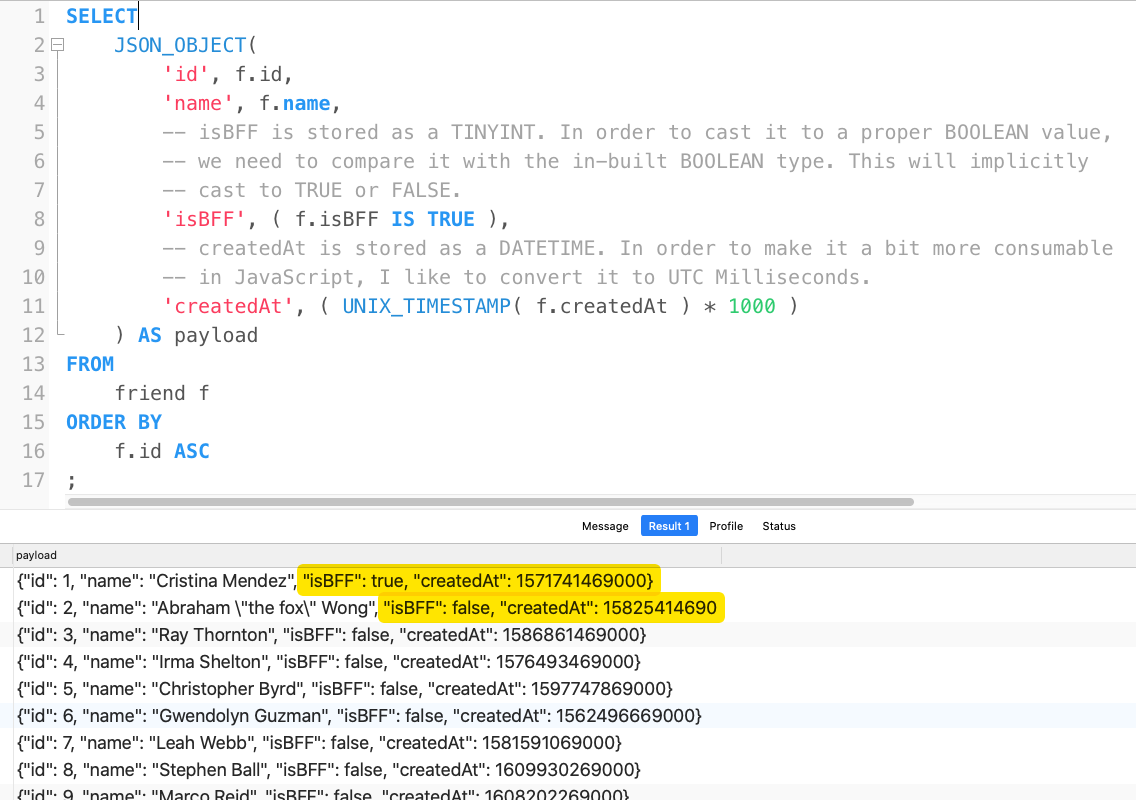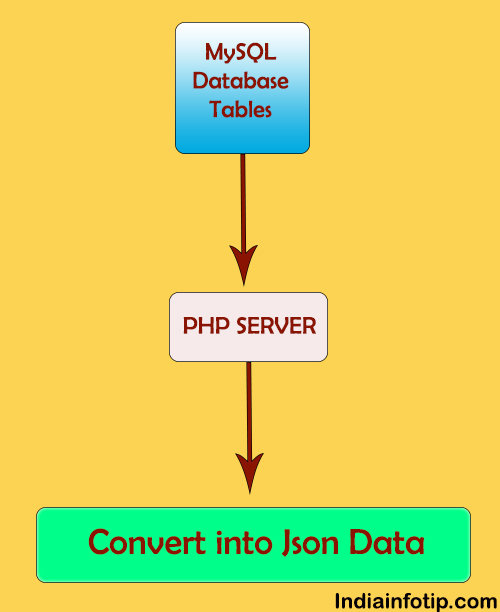
- #Mysql json compare column with a json object how to
- #Mysql json compare column with a json object trial
How about freeform website content? Or sparsely populated sets of attributes for each row?Ī classic example is an online shop which sells a variety of products. There are some common problems that aren’t a good fit, however. As long as all your records (or “rows”) are the same shape and have the same sorts of data in approximately the same quantities, this works brilliantly well. Traditional database structures have us design table-shaped ways of storing all our data. With such wide adoption as MySQL has, the JSON features are now reaching a new tribe of developers. MySQL isn’t the first database to offer JSON storage the document databases (such as MongoDB, CouchDB) work on a JSON or JSON-ish basis by design, and other platforms including PostgreSQL, Oracle and SQL Server also have varying degress of JSON support.
#Mysql json compare column with a json object how to
I wanted to share some examples of when it’s useful to have JSON data in your MySQL database and how to work with the new data types (not least so I can refer back to them later!) ALTER TABLE `players` ADD COLUMN `battlefield_level_virtual` INT GENERATED ALWAYS AS (`player_and_games` -> '$.games_') NOT NULL AFTER `names_virtual` ĪLTER TABLE `players` ADD COLUMN `tennis_won_virtual` INT GENERATED ALWAYS AS (`player_and_games` -> '$.games_played."Crazy Tennis".won') NOT NULL AFTER `battlefield_level_virtual` ĪLTER TABLE `players` ADD COLUMN `tennis_lost_virtual` INT GENERATED ALWAYS AS (`player_and_games` -> '$.games_played."Crazy Tennis".lost') NOT NULL AFTER `tennis_won_virtual` ĪLTER TABLE `players` ADD COLUMN `times_virtual` INT GENERATED ALWAYS AS (`player_and_games` -> '$.games_') NOT NULL AFTER `tennis_lost_virtual` Īgain, running the query SHOW COLUMNS FROM players, we see that all of the columns have VIRTUAL GENERATED next to them, meaning that we've successfully set up new VIRTUAL generated columns.There’s a new JSON data type available in MySQL 5.7 that I’ve been playing with. These will hold the Battlefield levels, tennis games won, tennis games lost, and the Puzzler times. Now that we set up the table and our first VIRTUAL column, let's add four more columns using the ALTER TABLE and ADD COLUMN operations. If you don't know whether your columns are VIRTUAL or STORED, just run the above SHOW COLUMNS query and it will either show VIRTUAL GENERATED or STORED GENERATED. Since we haven't indicated whether the generated column is VIRTUAL or STORED, by default MySQL automatically set up a VIRTUAL column for us. | names_virtual | varchar(20) | NO | | NULL | VIRTUAL GENERATED | | player_and_games | json | NO | | NULL | | | id | int(10) unsigned | NO | PRI | NULL | | | Field | Type | Null | Key | Default | Extra | Let's do a quick check to show how the columns have been set up by MySQL: SHOW COLUMNS FROM `players`

+-+-+-+Īs we can see, the table includes the names_virtual column with all the player's names inserted. The dataset contains a list of players with the following elements: a player ID, name, and games played: Battlefield, _Crazy Tennis, and Puzzler. In this article, we'll be using a player and games JSON dataset that can be downloaded here. By generating columns from values within a JSON document and then indexing that column, we can practically index a JSON field. Generated columns, introduced in MySQL 5.7.5, allow developers to create columns that hold information generated from other columns, predefined expressions, or calculations. We can though use generated columns to achieve something similar. One thing that has been missing since MySQL added the JSON data type in version 5.7.8, is the ability to index JSON values, at least directly.

MySQL doesn't have a way to index JSON documents directly, but it has given us an alternative: generated columns.

#Mysql json compare column with a json object trial
MySQL for JSON: Generated Columns and Indexing mysql json indexing Free 30 Day Trial


 0 kommentar(er)
0 kommentar(er)
